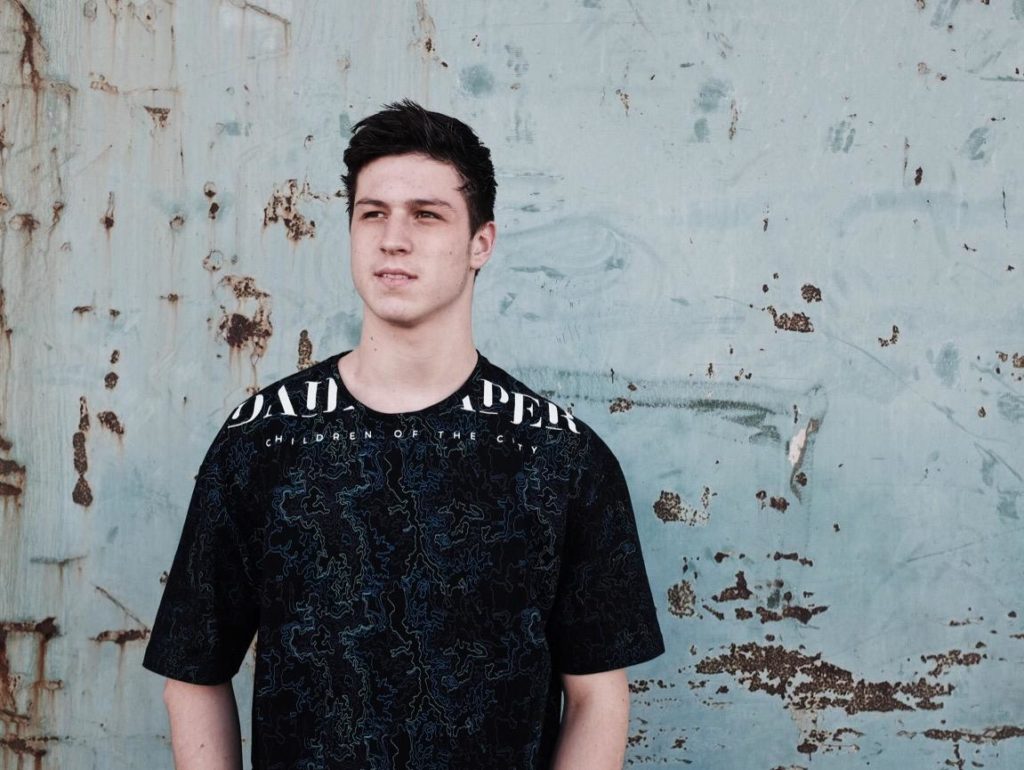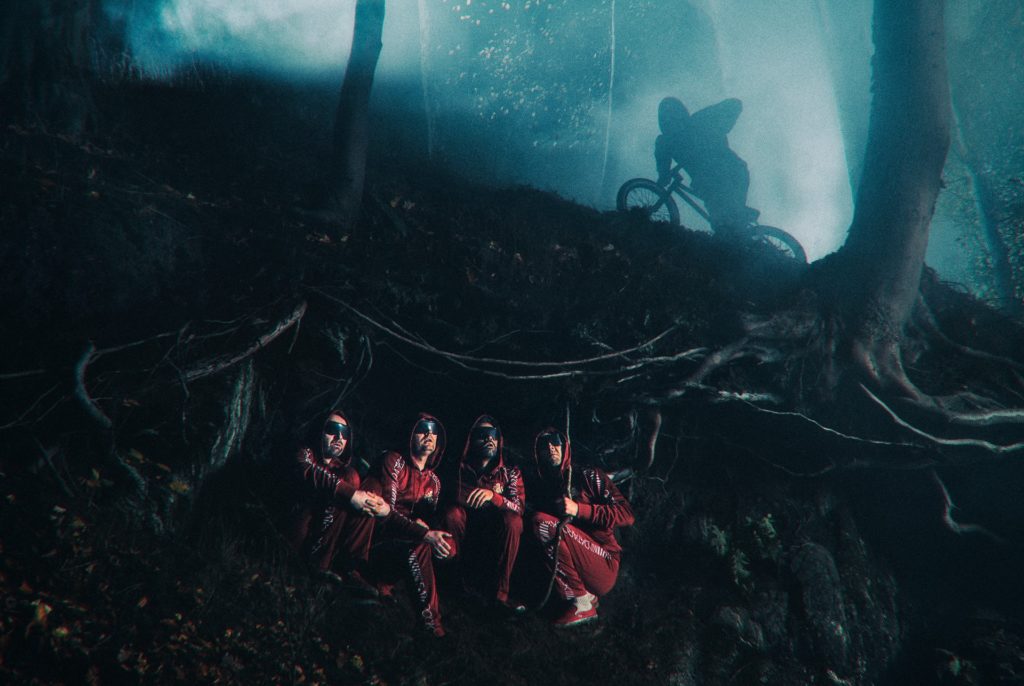One of the most popular artists of the past few decades passed away. While very little is known about the cause of his passing, many artists are paying tribute, many times through remixing or editing his songs. But should they be?
The death of Prince shocked the world this week. And within the first few hours after the news broke, the first tribute remixes got uploaded to sites such as Soundcloud and Youtube. Music is and has been part of public grief. But before we get into an early example of that, there’s something ‘off’ about public grief.
Too busy ‘never forgetting’ other people
The first three lines of this article are purposefully interchangeable. It could’ve been about Michael Jackson, a few weeks ago it could’ve been Bowie. A trend that arguably isn’t even a trend anymore. We know public mourning of celebrities is an old media phenomenon, and we did it long before early social sites like Myspace arrived and we did it using music.
In 1997 Elton John hit the peak positions in national charts all over the western world with his song for the deceased Princess of Wales, ‘Candle In The Wind’. Britain and seemingly the world mourned for Diana, Duchess of Rothesay, who died in a car crash. But no matter how big the impact looked then, it didn’t last long according to Freelance writer Patrick West fro the Telegraph: “Yet on the fifth anniversary of her death, the gardens of Althorp and Kensington Palace were deserted. Diana had served her purpose. The public had moved on. They were now too busy ‘never forgetting’ other people.”
Recreational grieving
Right there and then, Bitish media started using the term ‘mourning sickness’. Or as the Telegraph’s Sean O’Neill put it a few years later: “a collective condition characterised by ostentatious, recreational grieving for dead celebrities and murder victims.” People grief publicly and on social media, and some academic research has already given few reasons why we do it. For example: an audience actually creates a one-sided relationship with (even fictional) celebrities, in a way they are part of our social lives. Other researchers and journalists point towards more selfish reasons. Such as wanting to be seen mourning, projecting our own personal losses onto bigger tragedies or simply a form of voyeurism.
A ‘Father Sings To His Dying Newborn Son After His Wife Dies Following Childbirth‘-video is another serious example – it went viral. A new term found its way onto the internet and into our collective memory: grief porn. The word itself almost looks designed to ‘stick’ in tabloids and on buzz articles, there’s a distinct pairing of opposites like tragedy and our own satisfaction. Entertainment (such as music) isn’t just a part of public grief – grief itself is entertainment.
So at this point you might get cynical when you think about the assumed superficial nature of collective grief. But maybe the word ‘collective’ falsely implies there’s one single emotion felt by an entire group, while there may be a million different individuals with different feelings about a certain tragedy. Surely it would be harsh to simply dismiss these emotions (and their sincerity) by putting a ‘media hype’ tag on all of it.
| “I still can’t believe this musical genius passed away yesterday! What a shock and major loss for all of us! My memories to Prince go back to my earliest childhood memories and accompanied me through all my life! I’m still lacking words so I’ll let the music speak and share with you my edit of his fantastic “Pop Life” track. Done with love and respect to one of the greatest of all time! R.I.P. Prince ” |
“News of Prince passing has left me sad as he was an artist that I grew up with, listening to and studying when I was in music school as a kid. This has always been one of my favorite tunes and I wanna play this out as a tribute to someone who has inspired me as he has so many. I hope you enjoy this. Thanks for listening! ” | “When you see the worldwide outpouring of grief for such a special musical talent you realize the kind of impact it’s possible for one man to have on our world. It may only be something small but we would like to release this remix from Luca Cazal and James What as a mark of respect for the Purple One. R.I.P Prince.” |
| – Roman Rauch | – Lucien Foort | – Luca Cazal & James What |
These are testimonials by some of Prince’s most recent remixers. Because in the field of music production, a lot of tributes naturally come in the form of music. Do some searching on Soundcloud or Youtube, you’ll find plenty of user generated content such as covers, remixes and edits. Here’s just a few examples: Roman Rauch, Mancini, FILES, Paolo Madzone Zampetti, Lucien Foort, Valique, Luca Cazal & James What, Kabale Und Liebe, WVTDΛFVNK, AKEEDRO, Phil Drummond, D-Pulse and Dave Alison.
Sociology and a glimpse on what we’re really mourning
It doesn’t seem like a respectful question, but what are these musicians really paying a tribute to? Surely none of the above remixers knew Prince Rogers Nelson personally, so what kind of relationship was there?
There’s some hints to what celebrities mean to us in sociology. In 1975 sociologists Richard Wohl and Donald Horton coined the term parasocial relationship for the relationship between fans and celebrities. Not only does this mean that only one individual knew of the other and not the other way around. The fan only knows a representation of a celebrity, one that’s filtered, molded by commercial interests and skewed by which media messages about the artist actually reached the audience. So when we asked about the meaning of Prince, the above mentioned remixers gave similar answers, all about the artist Prince.
| “For us personally Prince wasn’t that kind of a “pop-star” always trying to follow the hype and spreading constantly-changing messages, if you know what I mean. Firstly he was a great producer, multi-instrumentalist, highly talented guitarist and outstanding performer. Although he enters the Rock-n-Roll Hall of Fame, and being well-known as Pop-Rock artists, for us Prince is more about sexiest side of funk. I guess he was biggest influence for all who wanted to get that sexy groove. And again it was about Iconic style and absolute sincerity. Pretty sure that no stars will ever shine so bright.” |
“Prince was a pretty delayed influence on me. When I saw him in early 90’s, he was already a sexy MF, too sweet for me at that time (well, I was more concentrated on NY free-jazz and industrial/jungle music). As the time flew by, more of the funky music entered my range, I couldn’t help but appreciating the groove and that special feel that him and him only had. Talking to tech guys (and I did a lot of live and studio sound-engineering and installations at that time), I’d say – I get you dry and punchy like Prince and the message was 100% clear. But still he was more of a personal enjoyment, rather than a play-out – watching him live would be a close-circle pleasure, but playing out “When Doves Cry” still’d be like – what for?
Later on, as disco re-entered the stage, there was a massive re-thinking of the grooves, and of course, many producers would rework older material with a third millenia sound, Prince was still kind of a standard, but very touchy – hard to cut up in smaller phrases, self-sufficient in the groove. Official remixes legged behind and nu-disco heads played it new, letting the best of him rock the dance floors again. Still he’d be like a one of the highest points in the dj set, not an average filler.” |
“I can say that this guy for me was a true genious, a complete artist… His music was so groovy and sexy and his charisma in concert could make you lose yourself! A big loss …” |
| – D-Pulse | – Valique | – Mancini |
These are surely heartfelt responses. But it looks like what is being honored here is a professional legacy, not a person. Not to be disrespectful, but for example we also knew Bill Cosby for his funny sweaters until the other thing happened. We know our celebrities by image, not personally. There are some features that resemble a real releationship. For instance, we see our ideal selves in our idols, which can drive individuals to be more like their idols – more like their ideal selves (J. L. Derrick, S. Gabriel, and B. Tippin, 2008). But a large part of the relationship is fictional. Perhaps our grief is shaped differently because what we grieve for – what we have known – is different and arguably a lot more superficial.
Respectful vs. respecting wishes
It could explain the difference between the remix as a respectful goodbye and the remix as a form of mourning that doesn’t respect the deceased – or at least his wishes. From an emotional standpoint it’s a beautiful thing to see so many artists come together on platforms such as Soundcloud to share a tribute to a fallen star. But are they respecting the wishes of The Artist Formally Known As Prince?
Maybe not. The most recent example of this goes back to a takedown order issued against YouTube in 2007. A young mother posted a video of het 13-month-old son dancing to a song of Prince on the radio. Universal Music – together with Prince owning the rights to the song – issued the order because their property was being used without permission. The mother, Stephanie Lenz, filed a counter-notice arguing fair use. After this, Lenz sued Universal for allegedly filing a frivolous copyright takedown notice.
It’s not the only known case of Prince fighting for compensation for his work. The Artist reportedly hasn’t shied away from suing his own fans over the use of online images, and in 2007 he announced he was going to take action against Youtube, eBay, and The Pirate Bay for unauthorized use of his music. There’s no saying what the artist himself would think. But still, wouldn’t sharing free bootlegs of his music be pretty much the same as honoring Princess of Wales Diana with a demolition derby?
Jump on the bandwagon
When asked about Prince’s stance on copyright through the soundcloud messaging system, the remixers’ response lessened (though the invitation to talk about it stays open). Valique: “When you talk about copyright issues, you have to bear in mind that enormous amount of the ‘original’ music that you hear these days has less originality and far more repetition(melodically, harmonically, sound-wise even worse!), than a well-produced rethinking of the grooviest man in the world. So who’s using who?” – while that’s a great argument for aesthetics and a compliment for Prince, it doesn’t really address the wishes of the artist formally known as Prince.
Neither does it address copyright laws, which by default requires these remixers to ask permission to all rights holders including labels, publishers, song producers and the people to whom Prince leaves his own copyrights. Perhaps there isn’t even a solid argument to go against copyright law or the original artist’s wishes.
So why are all these grief remixes here? As shown above, public grief can be recreative and short lived. Which leads to the question if some artists aren’t simply jumping the bandwagon the get some recognition for their own work – much like the audience who could simply want to be seen grieving.
It’s questioning the integrity of remixers who might respectfully be trying to pay homage to a dead idol. Still, considering the recreative nature of grief it’s a fair question to ask. The answer will likely be different for each individual – because yes, these remixes are likely either made or simple re-posted with the best of intentions.
But then there’s ‘that guy’ who – when asked about Prince – took the opportunity to dwell on about his own touring schedule. Furtermore, there’s that handful of remixers who offer their remix up for download, provided you subscribe to said remixer on various social sites. Collective grief is entertainment. And yes at least in some cases – not all – some remixers seem to take advantage of that.
Featured Image Scott Penner











Comments are closed.